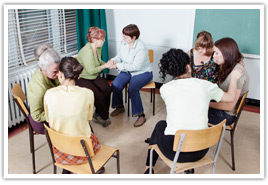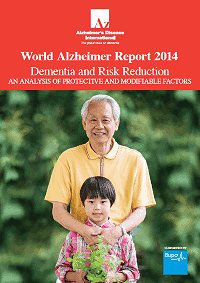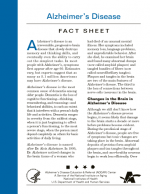(Family Caregiver Alliance) Providing care for your parents can be complicated. When your brothers and sisters are also involved, caregiving can become even more complex. While your siblings can be enormously helpful and your best support, they can also be a source of stress.
In this Fact Sheet you will learn how to identify the family dynamics that can impact caregiving, ways your siblings can help, how to increase your chances of getting that help, and how to deal with emotions that arise.
Why sibling tensions can erupt as parents need care
Today’s adult children and their parents are going through a new kind of family transition. Because parents are living longer—but with chronic illnesses—their adult children are now caring for them for up to a decade or more. Siblings—or in some cases step-siblings—might not have a model for how to work together to handle caregiving and the many practical, emotional and financial issues that go with it. There is no clear path guiding who should do what, no roadmap for how siblings should interact as mature adults. While some families are able to work out differences, many others struggle.
Siblings are also going through a major emotional passage that stirs up feelings from childhood. Watching our parents age and die is one of the hardest things in life, and everyone in the family will handle it differently.
It’s normal to feel a wide range of emotions. You may find that needs arise for love, approval, or being seen as important or competent as a sibling. You may not even be conscious of these feelings, but they affect the way you deal with your parents and with each other. So without realizing it, you may all be competing with each other as you did when you were kids. Now, however, the fights are over caregiving: who does or doesn’t do it; how much; and who is in charge.
This is a hard time, so have compassion for yourself, and try to have compassion for your siblings. You don’t have to excuse negative behavior, but try to imagine the fear, pain or need that is causing your siblings to react as they do. That kind of understanding can defuse a lot of family conflict.
As a family, carefully consider—or reconsider—the caregiving responsibilities
Families often don’t think through who becomes the primary caregiver and what supporting roles other family members will play. Caregiving may start when the sibling who lives nearby or has a close relationship to the parent helps out with small things. You may not even identify yourself as a caregiver at first, but then find yourself overwhelmed and feeling resentful of your siblings as your parent requires more help. It’s easy for families to fall into common traps, assuming, for example, that the son will handle finances while the daughter will take care of emotional or physical care needs.
In another common trap, one sibling may become Mom’s caregiver because he or she doesn’t have a job or needs a place to stay, and family members think this arrangement will solve a lot of problems. But it can be a recipe for trouble. The family needs to spell out clearly what that person will be expected to do, whether there will be financial compensation, and how that will work. In addition, the sibling(s) should be clear about what support tasks each will provide.
You need to re-examine all these assumptions as a family. The best way to do this is to call a family meeting as early (and, later, as often) as possible. A family meeting can provide a place to discuss the parent’s needs and to ask what each person can contribute in time or money. If needed, a trusted person outside the family can facilitate. See “Holding a Family Meeting” in the Recommended Readings section of this Fact Sheet for more information.
Think about family roles when you were growing up, and how you can change them for caregiving
Whenever we get together with family, most of us tend to slip into our old roles, even though we behave differently when we are with other people. But these roles may not work anymore. Parents may not be able to play the parts they did when the family was young, like making the decisions, providing emotional support, or smoothing tensions between family members.
Maybe you were expected to be the responsible one; maybe your brother was seen as someone who needed taking care of. Maybe your other sister was groomed to go off and become the achiever while family chores were left to others. Perhaps you were identified as the “caring” one while your sister was labeled “selfish” or “cold.” So ask yourself: am I being pulled into being the big sister or the helpless little kid even though we’re all adults now?
Also, it’s helpful now to take a fresh look at your siblings. Parents create labels and roles for each child, and everyone in the family adopts them and assumes they are true. They may be based on some reality, but parents may also assign these labels for all kinds of reasons: who was born first or last, which kid reminds Mom of her older sister (who she resented), which kid is most like Dad in personality—and how Mom feels about Dad!
Whatever the reasons for these roles, we need to re-examine them now. If you were the “responsible” one, it does not mean that you should accept doing everything because you always did-even though your siblings may expect you to take on that role. You may need to help them see that you can all adapt your roles to new times and who you are today. Also, if you assume a brother or sister is less capable or helpful because that’s the way you saw them as kids, you are less likely to get help from them. If you approach them differently, they may prove to be more helpful than you think possible.
Siblings may have different ideas about what parents need
The idea that you may soon lose Mom or Dad, or that they need more care, can be really scary. Some adult children still need their Mom to be the parent. Some get over-anxious and think the parent is in bigger trouble than they are. Some just can’t accept that the parents need as much help as they do. These differences are common. Here are some ways to handle this:
- If there’s no emergency, allow some time to get everyone on the same page. It’s natural for siblings to take in the situation at different times and in different ways. This can happen regardless of whether they’re far away or close.
- Share information. Get a professional assessment of your parent’s condition by a doctor, social worker or geriatric care manager and send the report to all your siblings. Try using email, online care sharing tools and/or in-person family meetings to help keep everyone abreast of care issues and information.
- Keep in mind that parents often tell their kids different things about how they’re doing. This is a good reason to keep communication lines open with each other and to try to pool your information about your parent’s health.
Try to separate your parent’s needs from your own—and yesterday’s battles from today’s decisions
It’s natural to take pride in being able to help your parent, or feel satisfaction that you are doing something important and valuable. When these basic needs are satisfied caregivers feel good about what they’re doing and feel less burdened.
But you may also have other less conscious, emotional needs that can actually make things harder for you. For example, if you feel you must make your Mom happy—when she’s never been a happy person or has suffered painful losses—you may be setting yourself up for an impossible task. You can make sure your parents are well cared for, but it isn’t your job—nor is it always possible—to make them happy.
So try to focus on the essential things your parent needs for good care. For example, if you insist on doing all Mom’s shopping because only you know what she likes, you may exhaust yourself. And it’s hardly a tragedy if your sister buys her a different brand of tuna.
When those old needs to be loved and approved of get stirred up, it can fire up sibling rivalry. After all, you’re not the only child who needs to feel important to Mom or Dad. So when you’re discussing whether Dad needs a more expensive wheelchair or Mom is still safe at home, try to keep the discussion on the concrete issue at hand, not on which of you cares the most or knows what is best.
Pages: 1 2







